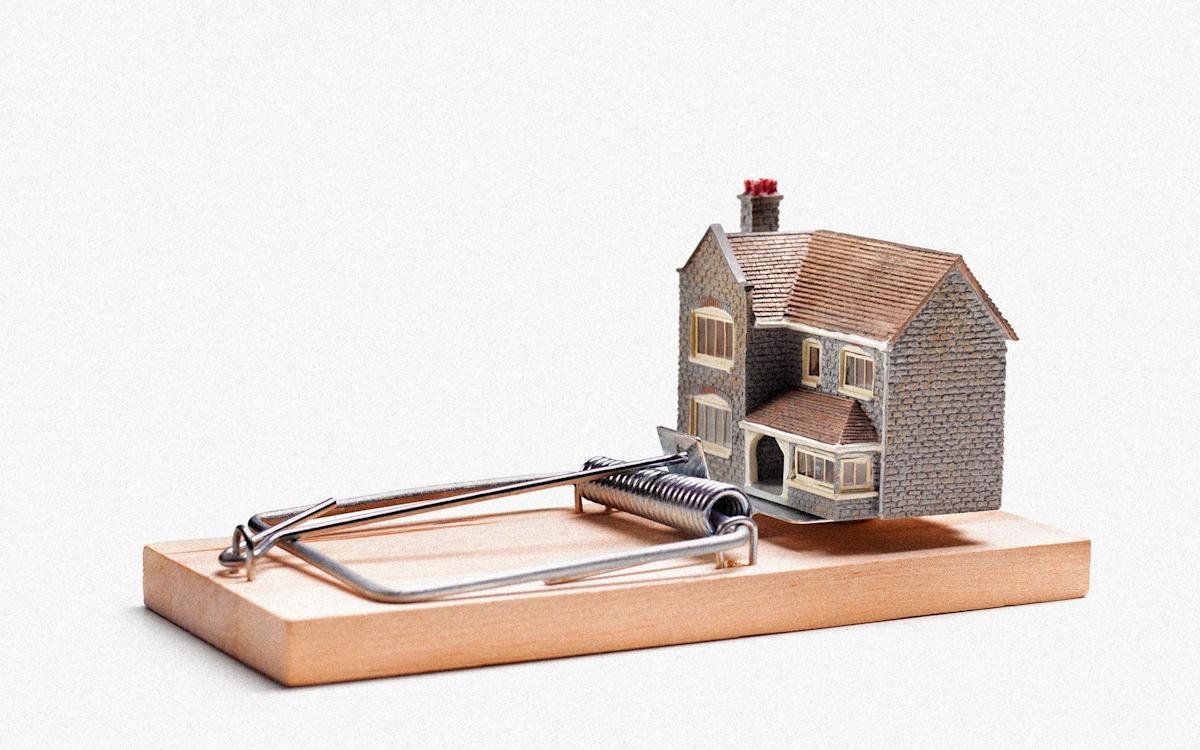Do you have a property dilemma or question for Samantha? Email money@telegraph.co.uk.
I blame Sarah Beeny, famed property TV show host, for my start in property. With her bouncy, blonde hair and tips for easy ways of making a buck overnight with some DIY, I figured it looked like a fun way to make money.
Naïve and in my 20s with £15,000 to burn, I decided I would flip properties.
Now that I’m older and wiser, I can tell you real life is really not like TV (Homes Under the Hammer, I’m looking at you). Here are the key lessons I wish I knew back then.
There’s no overnight Lamborghini in the drive
When I first started out, I was sure that within just a short period I’d have flipped enough to get so rich I’d have a rainbow of Lambos on the full sweeping in-out drive. It’s utter tosh – and I get mad when I hear the same twaddle being spouted now on social media.
If you want to make it in property – or any business, for that matter – every penny and pound of profit you can spare should be reinvested to make your business better and stronger.
That means even if you start with a little deal that makes a little profit, you soon start chasing the bigger and better places, which ultimately require more outlay and more risk. Before you know it, most of your money is tied up in illiquid assets and any chance you have of buying that Lambo means you either have to sell off a good investment or liquidate a profitable property.
Of course, all of those things are possible, but the difficulty is when you don’t get “overnight riches” (like if you’d bought up a load of crypto at a lucky moment). You know how hard you worked to earn that money, so you don’t tend to blow it so easily.
One of the hardest lessons I struggle with is not regretting spending money on myself. I often think, “But I could buy a new bathroom or get a room plastered for that!” I think the property investor’s mindset takes a lifetime to learn, and then another lifetime to unlearn.
High yields mean high hassle
Years ago, a developer friend of mine told me, “This business is feast or famine”. With regular bills to pay, I figured some high-yielding rentals in the West Midlands would be a good way to keep a steady cash flow.
I was wrong.
High yields only come from high hassle. As the saying goes, “when you buy cheap, you buy twice”, but in this case you don’t get double the value, just more likely a tripling of the problems.
When property is cheap, it’s cheap for a reason. There will always be a mountain of things to do, and when you have tenants in situ, every job takes at least six times longer. Also, if things don’t get done on time, you’re dealing with the fallout.
All of this multiplies when you’re trying to focus on something else, and before you know it, that little side hustle becomes a full-time headache. If you really want to get a task done up to standard, you need to completely focus on it to the exclusion of all else.
Cheap is not always cheerful
When materials cost so much, it’s easy to look for the cheap fix rather than the quality fix. I’ve been guilty of applying this logic before and always have to remind myself to factor in the labour costs as well – plus the inconvenience factor of having to make repairs again when the cheap ones inevitably don’t last.
As much as it pains me to spend more than I need to, I now force myself to apply a longer-term view – just in case a project doesn’t sell and I end up owning it for longer than anticipated. This includes not installing white carpets (yes, done that; they looked fab on day one) and if I’m re-plastering walls or ceilings to install additional insulation wherever I can.
Hedging your bets does cost more, but markets can change with alarming speed. That means it’s always best practice to be ready with Plan B, C and D before you get stuck with a property that hasn’t been looked after properly.
No two properties are the same
Yes, there are transferable skills you can take to projects, but every property suits a different sort of person for a different sort of reason. Understanding your market is key to success, and while the cookie-cutter approach can work for big companies, it’s better to succeed as a small business doing the best you can.
Samantha Collett is the author of ‘How to Buy Property at Auction’ and ‘Property Investment: The Essential Rules’.





